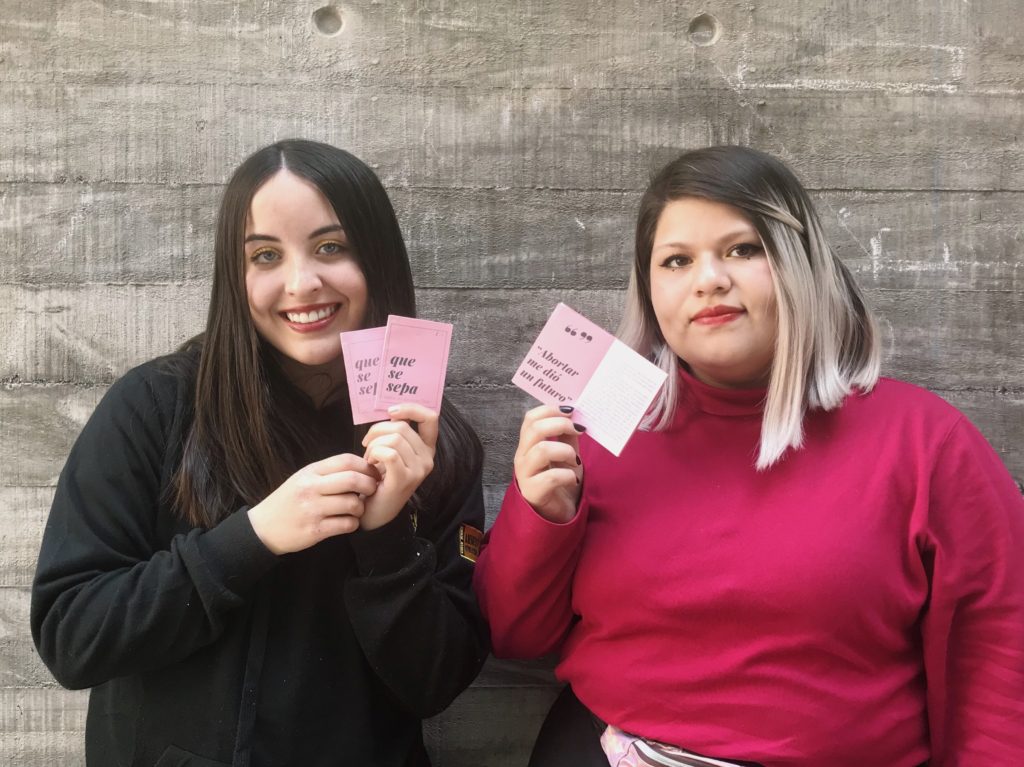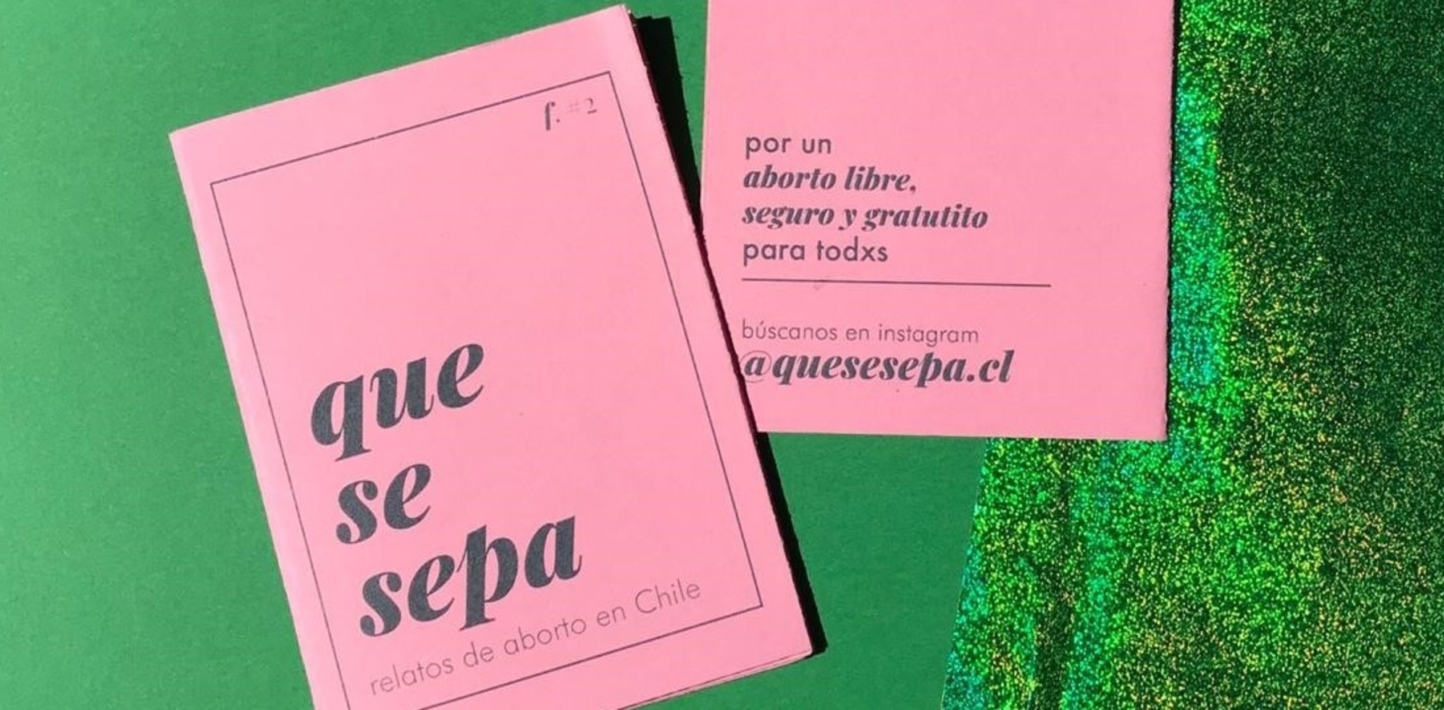Author: Karin Watson, Chile
Determined to remove the stigma associated with abortion in Chile, Karin Watson, 22, and her friend founded Que se sepa! (Let it be known), a platform for women to share their experiences of abortion in a safe way. It’s a radical idea that is having a huge impact on women’s lives across the conservative country…
Up until 2017, there was a total ban on abortion in Chile. A legacy of the dictatorship, we were one of just five countries in the world with this law in place.
Now women can have an abortion when a woman’s life is in danger, when a foetus is unviable and when pregnancy results from rape. Even though it’s a step forward, issues remain. Our government is becoming increasingly right wing. They’ve tried to pull back this new law on numerous occasions and they’ve stopped actively distributing information about women’s right to abortion.
I started working on sexual and reproductive rights after my teacher suggested I join a local Amnesty International group. Coming from a super feminist background, I knew I wanted to get involved and I soon started working on the campaign, My Body My Rights, which aimedto stop the control and criminalization of sexuality and reproduction.
To me, every woman should have the right to choose whether they have an abortion and they deserve a safe space to talk about this issue, so they know they’re not alone.
A platform for women to speak out

As part of a university project, my friend Danae Muñoz and I were tasked with coming up with an innovative media and communications project. We wanted to focus on the right to safe and legal abortion, so we decided to create a platform where women were able to share their stories and experiences of what it was like to have one.
My friend and I know so many people who have had an abortion, but people don’t share any further details. It’s just something you share with your best friend. We wanted to reach out to them to see if they would be willing to share their experiences.
It wasn’t an easy process. I attend a Catholic university, where they lead anti-abortion campaigns, so when it came to sharing our idea with our professor, we were worried about his reaction. But he told us to go for it, offering his full support.
We did a lot of research into the issue. It’s such a hugely complicated and controversial topic, so we spoke to psychologists, social scientists and lawyers, before proceeding with our idea.
To kickstart the project, we sent out a survey via WhatsApp, Instagram and Facebook, asking simple questions, such as:
- Do you agree with free abortion?
- Do you know someone who has had an abortion?
- Do you know someone who has accompanied someone to an abortion?
We wanted to reach people outside our feminist circles, so we contacted a range of influencers. Over 700 people replied, but the most amazing thing was how many people who were willing to share their stories, but just didn’t have a platform to do so.
Let it be known
Que Se Sepa
Let it be known!
We started our project on Instagram, naming our page quesesepa.cl(Let it be known). People were able to get in touch with us directly and we could reply and share how everything worked, including consent forms and the importance of ensuring anonymity.
When we first started receiving stories, I felt super emotional. Some women said it was the best thing they’d ever done and that they’d felt such a sense of relief afterwards, while others were left feeling devastated and in need of help.
But we wanted to show the diversity of these stories. When abortion is covered in the public domain, it’s very one-sided. It’s simply about “killing babies”. From poverty and sexual violence to simply not being ready, the real reasons why women choose to have an abortion are rarely covered, they’re hidden away.
As part of the project – and as abortion is still illegal in many circumstances – we also refer women to a local NGO, who can support them through the entire process of obtaining an abortion, by helping women access the pills they need, providing financial support and finding them a safe place to go and stay. My sister is a volunteer and regularly offers her apartment to women in need, providing a safe space with food and support.
Our platform is steadily growing. We currently have over 1,100 followers and we’ve been approached by small, grassroots publishers to produce fanzines (small magazines). We’re not bothered about making a profit – it’s more about making a statement.
Overall, we’ve received a positive reaction to our platform. People have been sending messages saying “thank you” and telling us how much this platform is needed. However, we recently published a quote from a story, stating, “I had an abortion and it was the best decision I have made.” It was a strong statement and it went viral, but at the same time, we started receiving hate comments mostly from men in Argentina. We’ve left the comments up, in a bid to start a discussion.
We won’t let those comments deter us, because we know this platform is something that women need – these stories deserve to be shared. We still have a fair way to go before abortion is fully legalized in Chile. It won’t happen tomorrow and it’s a fight that’s going to take a long time, but I know we’re going to do it!
Karin Watson is a member of Amnesty International’s Global Youth Collective.


